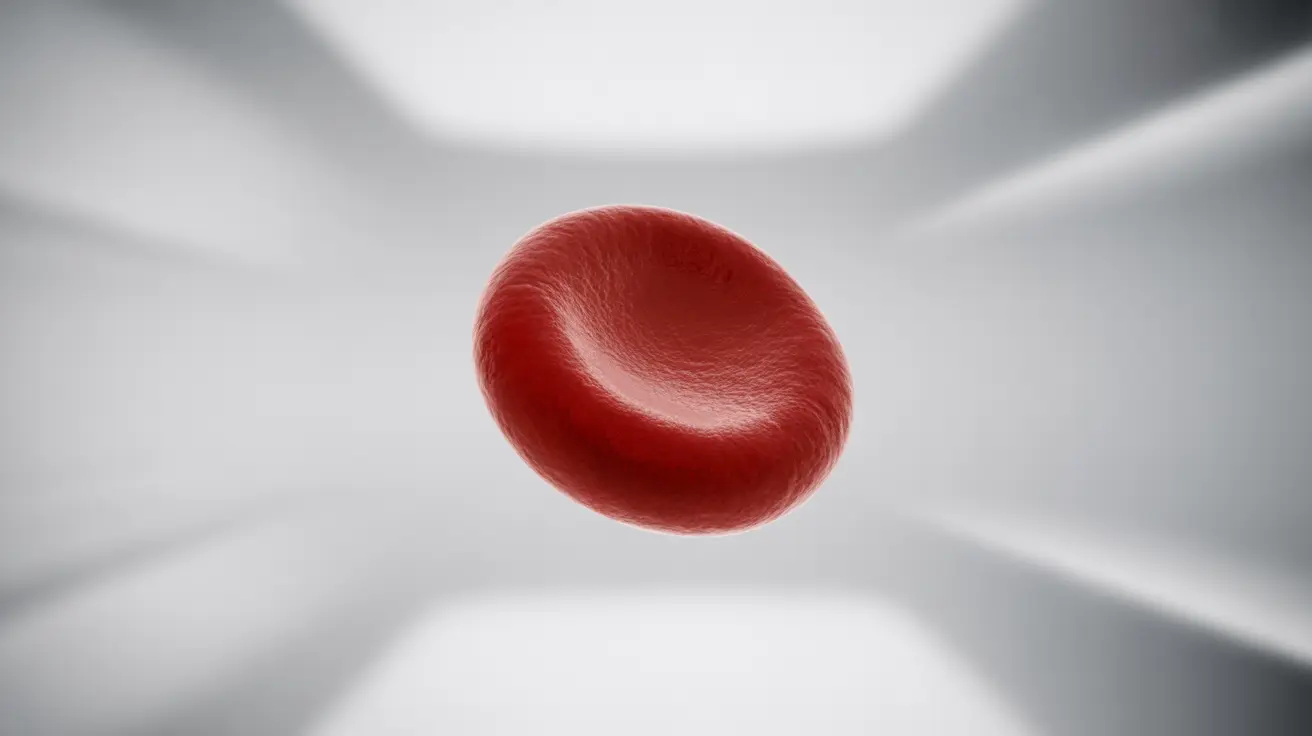If you've recently received blood test results showing a high Mean Corpuscular Volume (MCV), you may be concerned about what this means for your health, particularly regarding cancer. While an elevated MCV can be associated with certain types of cancer, it's important to understand that there are many other, more common causes that should be considered first.
Understanding the relationship between high MCV and various health conditions, including cancer, can help you make informed decisions about your healthcare and know when to seek medical attention. Let's explore what high MCV means and its various implications for your health.
Understanding MCV and Its Normal Range
Mean Corpuscular Volume (MCV) is a measurement that indicates the average size of your red blood cells. Normal MCV values typically range from 80 to 100 femtoliters (fL), though exact ranges may vary slightly between laboratories. When MCV levels exceed this range, it's considered high or elevated.
Common Non-Cancer Causes of High MCV
Before assuming a cancer diagnosis, it's important to recognize that numerous conditions and factors can lead to elevated MCV levels:
- Vitamin B12 deficiency
- Folate deficiency
- Alcohol use or abuse
- Liver disease
- Hypothyroidism
- Certain medications
- Recent blood loss or chronic bleeding
The Cancer Connection: When to Be Concerned
While high MCV can be associated with certain blood cancers, it's typically not an isolated indicator. Blood cancers that may present with elevated MCV include:
- Myelodysplastic syndromes (MDS)
- Acute myeloid leukemia
- Multiple myeloma
However, these conditions usually present with additional symptoms and blood test abnormalities beyond just high MCV.
Important Warning Signs and Symptoms
If you have high MCV, pay attention to these additional symptoms that may warrant immediate medical attention:
- Unexplained fatigue or weakness
- Frequent infections
- Easy bruising or bleeding
- Shortness of breath
- Pale skin
- Unexplained weight loss
- Night sweats
Diagnostic Process and Medical Evaluation
When investigating high MCV, your healthcare provider will typically:
- Review your complete medical history
- Perform a physical examination
- Order additional blood tests
- Consider bone marrow testing if necessary
- Evaluate lifestyle factors and medication use
Frequently Asked Questions
Does having a high MCV mean I have cancer?
No, having high MCV alone does not necessarily mean you have cancer. While some types of cancer can cause elevated MCV, there are many other more common causes, including vitamin deficiencies, alcohol use, and certain medications.
What are the common causes of high MCV besides cancer?
Common non-cancer causes include vitamin B12 or folate deficiency, alcohol consumption, liver disease, hypothyroidism, certain medications, and chronic bleeding conditions.
How is high MCV related to myelodysplastic syndromes (MDS) and other blood cancers?
MDS and some blood cancers can affect bone marrow function, leading to the production of larger red blood cells and resulting in high MCV. However, these conditions typically present with multiple other blood abnormalities and symptoms beyond just elevated MCV.
What symptoms should prompt me to see a doctor if my MCV is high?
Seek medical attention if you experience unexplained fatigue, frequent infections, easy bruising or bleeding, shortness of breath, pale skin, unexplained weight loss, or night sweats alongside high MCV.
Can lifestyle factors like alcohol use and vitamin deficiencies cause an elevated MCV?
Yes, both alcohol use and vitamin deficiencies, particularly B12 and folate deficiencies, are common causes of high MCV. These factors are often more easily addressed through lifestyle changes and supplementation under medical supervision.
If you're concerned about high MCV levels, consult with your healthcare provider for proper evaluation and diagnosis. They can help determine the underlying cause and develop an appropriate treatment plan based on your specific situation.




